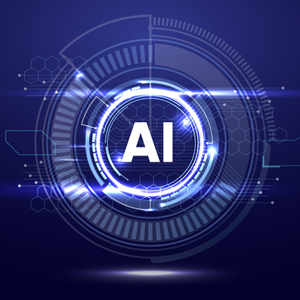Impact of Artificial Intelligence on Hiring and Employment

AI’s rapidly evolving disruptive technology is providing new opportunities but also posing challenges for employers and employees. From recruitment to performance management, AI promises enhanced efficiency and objectivity but also raises significant legal and ethical concerns.
Benefits and challenges of AI in recruitment
AI technologies streamline the recruitment process by screening resumes, conducting initial interviews, and predicting candidate success. These tools can significantly reduce time-to-hire and mitigate unconscious biases. However, they also introduce risks such as perpetuating existing biases if algorithms are trained based on biased data. The Department of Labor (DOL) emphasizes that employers must ensure that AI tools comply with antidiscrimination laws and provide equal opportunities for all candidates.
Diversity in your technology team and the wide range of perspectives it brings can help your company navigate the issue of systemic bias that can creep in with the use of AI tools. Transparency is also key. Employers must clearly communicate to candidates how AI is being used in recruitment, what data is being collected, and how it is influencing hiring decisions. This builds trust and ensures candidates are informed and can provide meaningful consent.
Legal and regulatory framework
The legal landscape surrounding AI in employment is evolving. The Biden administration has introduced principles emphasizing ethical AI development, transparency, and worker engagement to protect workers’ rights and well-being. The DOL’s guidance stresses the importance of non-discrimination and transparency, encouraging employers to regularly audit AI systems to ensure fairness and compliance with employment laws. Businesses must stay abreast of emerging AI regulations to mitigate legal risks.
The DOL’s policies include the promotion of fair and just AI, ensuring transparency and explainability, and preserving data privacy and security. Employers must also ensure that AI tools do not result in discriminatory impacts, which involves conducting thorough risk assessments and implementing safeguards to prevent bias. Additionally, the principles call for accountability in AI deployment, urging organizations to take responsibility for the outcomes of AI-driven decisions.
Federal contractors, in particular, must comply with specific obligations regarding AI use in employment practices. The Office of Federal Contract Compliance Programs (OFCCP) monitors AI decision-making tools for potential adverse impacts, ensuring contractors oversee their AI systems to comply with applicable laws. This proactive oversight helps prevent discriminatory practices and promotes a fair employment environment.
In addition, the DOL’s guidance highlights specific AI applications such as automated timekeeping and leave administration. Employers using these AI tools must ensure compliance with the Fair Labor Standards Act (FLSA) and Family and Medical Leave Act (FMLA). For instance, AI systems must accurately track hours worked to avoid wage and hour violations. Similarly, AI used in leave administration must correctly interpret FMLA eligibility and entitlements, ensuring employees receive their rightful benefits.
Ethical considerations and best practices
Beyond legal compliance, ethical considerations are paramount when integrating AI into employment practices. Employers should prioritize transparency, ensuring employees and candidates understand how AI is used and how decisions are made. Robust data privacy policies and informed consent are essential steps in maintaining trust. Additionally, ongoing training and development for HR and legal teams are crucial in managing the ethical implications of AI effectively.
Furthermore, businesses should engage in continuous dialogue with employees about the ethical use of AI. Establishing clear guidelines and codes of conduct for AI usage can help align the technology with organizational values. By fostering a culture of ethical AI implementation, employers can ensure that AIdriven decisions are made with integrity and respect for individual rights.
Strategic implementation of AI
Strategically implementing AI in employment practices involves a holistic approach, aligning technologies with organizational goals and values. Businesses should identify specific pain points in their HR processes that AI can address, ensuring that targeted AI investments deliver tangible benefits. Involving key stakeholders, including HR professionals, IT experts, and legal advisors, is crucial for effective and compliant AI applications.
Employers should also establish clear metrics to evaluate the effectiveness of AI tools. Regular assessments can identify areas for improvement and ensure that AI systems continue to meet organizational objectives. By adopting a strategic and iterative approach to AI implementation, businesses can maximize the benefits of AI while minimizing potential risks.
Conclusion
The intersection of AI and employment presents complex legal, ethical, and business challenges. By staying informed about regulatory developments, adopting best practices, and prioritizing transparency and fairness, businesses can harness AI’s benefits while safeguarding employee rights and maintaining a positive workplace culture. As AI evolves, employers must navigate this landscape thoughtfully and responsibly, ensuring equitable and sustainable outcomes for all stakeholders.
In conclusion, AI offers tremendous potential to revolutionize employment practices, but its integration must be approached with careful consideration of legal, and ethical implications. By prioritizing compliance, transparency, and employee well-being, businesses can create a future where AI enhances productivity, fosters fairness, and drives sustainable growth. Through strategic implementation and continuous learning, organizations can navigate the evolving AI landscape and build a workforce that thrives in the digital age.
Business Insights is hosted by the Law Firm of KPPB Law (www.kppblaw.com) based in Atlanta, Georgia with additional offices in New York, Northern Virginia, Chicago, and Connecticut. Sonjui Kumar is the co-founding partner of the firm.
Enjoyed reading Khabar magazine? Subscribe to Khabar and get a full digital copy of this Indian-American community magazine.
blog comments powered by Disqus










